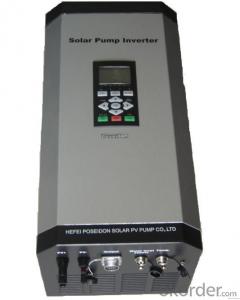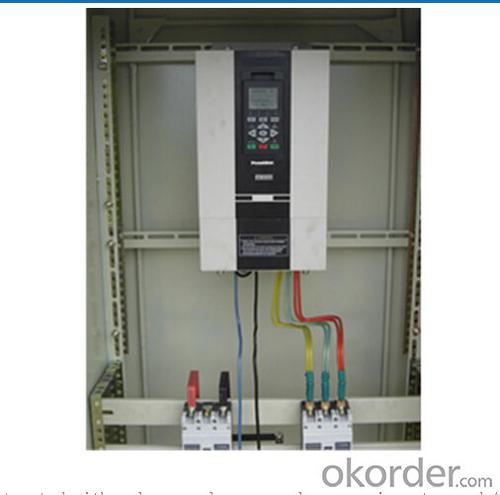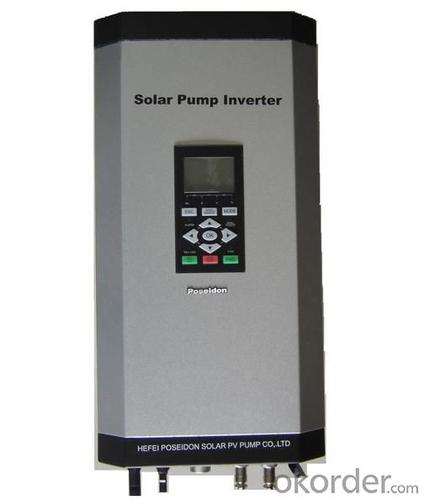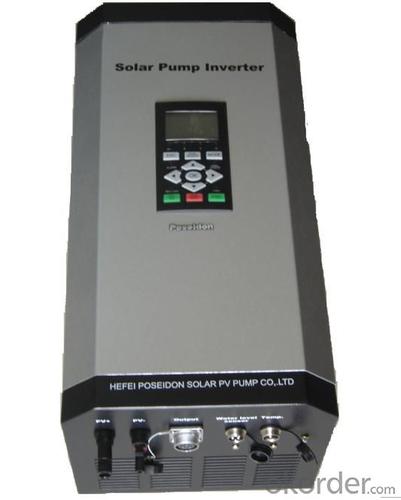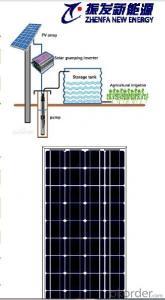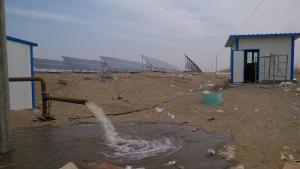2 Hp Solar Pump Inverter FCPM75KH
- Loading Port:
- China Main Port
- Payment Terms:
- TT OR LC
- Min Order Qty:
- -
- Supply Capability:
- -
OKorder Service Pledge
Quality Product, Order Online Tracking, Timely Delivery
OKorder Financial Service
Credit Rating, Credit Services, Credit Purchasing
You Might Also Like
Solar pump inverter FCPM75KH Product Description:
Solar water pumping system is constructed with solar panel array,solar pump inverter and AC water pump, DC current produced from solar panel will be delivered to solar pump inverter,and it will convert it into AC current to drive water pump,and will automatically regulate output frequency according to sun radiance intensity,maximally realize MPPT tracking function.
Features
Adopting the proposed dynamic VI maximum power point tracking (MPPT) control method, with fast response, and reliable operation, achieves efficiency of 99%.
Designed with variable frequency driver, greatly improves efficiency
Extremely high efficiency
Digital mode control, with automatic operation and manual operation mode options
Complete protection functions
Adopts intelligent IPM module, with high reliability
LCD display and operation panel, in real time presents operating data
Optional for water level measurement and control circuit
Applicable for general ACC pumps, like centrifugal pump, piston pump etc.
Independent intellectual property; Highly effective, the redundant reliability, exempts the maintenance and the long life.
The pumps are soft started, fully protected.
No batteries are used. So better Sunlight, more water.
Datasheet.
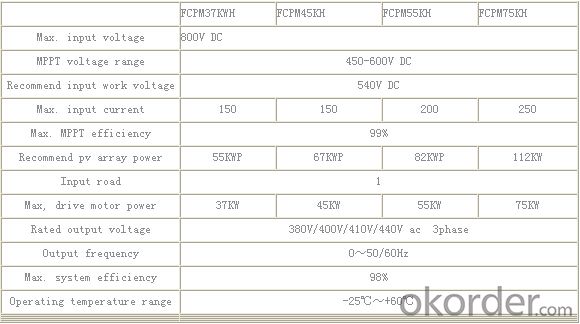
- Q: Can a solar pump be used in areas with freezing temperatures?
- Yes, a solar pump can be used in areas with freezing temperatures. However, it is important to consider the type of solar pump being used and take necessary precautions to prevent freezing or damage caused by low temperatures. This can be done by using insulation, antifreeze solutions, or installing a freeze protection system.
- Q: Can a solar pump be used for heating water?
- Yes, a solar pump can be used for heating water. Solar pumps are commonly used in solar water heating systems, where they circulate water from a storage tank through solar collectors to absorb heat from the sun. This heated water can then be used for various purposes, including domestic hot water or space heating.
- Q: Can a solar pump be used for industrial purposes?
- Yes, a solar pump can indeed be used for industrial purposes. Solar pumps are increasingly being utilized in various industrial applications such as agriculture, water supply, irrigation, and wastewater management. They offer a sustainable and cost-effective solution by harnessing solar energy to power the pump, reducing the reliance on traditional energy sources. Moreover, solar pumps are often more reliable, require less maintenance, and have a longer lifespan compared to conventional pumps, making them a viable choice for industrial use.
- Q: Can a solar pump be used in areas with limited access to water usage?
- Yes, a solar pump can be used in areas with limited access to water usage. Solar pumps are self-sufficient and can operate in remote locations without the need for grid electricity. They can utilize solar energy to pump water from wells, rivers, or other water sources, providing a sustainable solution for areas with limited access to water.
- Q: How does a solar pump handle water with high levels of arsenic or other toxins?
- A solar pump itself does not directly handle water with high levels of arsenic or other toxins. However, solar-powered water treatment systems can be integrated with solar pumps to address this issue. These systems typically incorporate advanced filtration or purification methods, such as reverse osmosis or activated carbon filters, to remove contaminants from the water. Therefore, a solar pump combined with a suitable water treatment system can effectively handle water with high levels of arsenic or other toxins by ensuring safe and clean water supply.
- Q: Can a solar pump be used in off-grid locations?
- Yes, a solar pump can be used in off-grid locations. Since solar pumps are powered by solar energy, they do not require a connection to the electrical grid. This makes them an excellent choice for remote areas or locations without access to electricity, as they can operate independently and provide water pumping solutions.
- Q: Can a solar pump be used in areas with strict emissions regulations?
- Yes, a solar pump can be used in areas with strict emissions regulations. Solar pumps operate using renewable energy from the sun, which is a clean and emission-free source of power. As a result, they do not produce any harmful emissions or pollutants that could violate the regulations in place. This makes solar pumps an environmentally friendly and compliant solution for pumping needs in areas with strict emissions regulations.
- Q: What is the maximum depth that a solar pump can draw water from?
- The maximum depth that a solar pump can draw water from varies depending on the specific model and its specifications. However, on average, solar pumps are capable of drawing water from depths of up to 100 to 200 feet (30 to 60 meters).
- Q: Can solar pumps be used for water supply in wineries or breweries?
- Yes, solar pumps can be used for water supply in wineries or breweries. Solar pumps are a sustainable and cost-effective option for water supply as they utilize solar energy to power the pumps. They can efficiently provide water for various purposes such as irrigation, cleaning, and other water-related activities in wineries or breweries. The use of solar pumps in these industries aligns well with their focus on sustainability and reducing their carbon footprint.
- Q: How does the depth of the water table affect the performance of a solar pump?
- The depth of the water table directly affects the performance of a solar pump. As the depth of the water table increases, the pump needs to work harder to lift the water to the surface, resulting in decreased efficiency and output. Therefore, a shallower water table allows the solar pump to operate more efficiently and effectively.
Send your message to us
2 Hp Solar Pump Inverter FCPM75KH
- Loading Port:
- China Main Port
- Payment Terms:
- TT OR LC
- Min Order Qty:
- -
- Supply Capability:
- -
OKorder Service Pledge
Quality Product, Order Online Tracking, Timely Delivery
OKorder Financial Service
Credit Rating, Credit Services, Credit Purchasing
Similar products
Hot products
Hot Searches
Related keywords


